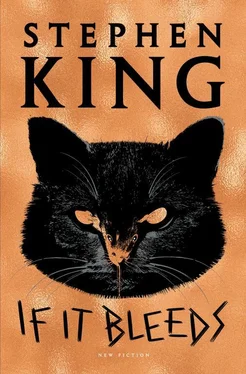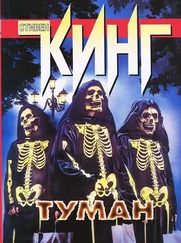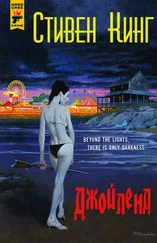“And seven days in a week. Everybody knows that, even little kids.”
“Well, everybody is wrong. There were twenty-three hours and fifty-six minutes in a stellar day. Plus a few odd seconds.”
“Were?”
“Correct. Based on my calculations, which I assure you I can back up, there are now twenty-four hours and two minutes in a day. Do you know what that means, Mr. Anderson?”
Marty thought it over. “Are you telling me the earth’s rotation is slowing down?”
“Exactly.” Yarbrough took his pipe out of his mouth and gestured at the people passing them on the sidewalk. Their numbers were thinning now that afternoon had begun to edge into twilight. “I’ll bet many of those folks think the multiple disasters we’re facing have a single cause rooted in what we have done to the earth’s environment. It’s not so. I would be the first to admit that we have treated our mother—yes, she’s the mother of us all—very badly, certainly molested her if not outright raped her, but we’re puny compared to the great clock of the universe. Puny . No, whatever is happening is much larger than environmental degradation.”
“Maybe it’s Chuck Krantz’s fault,” Marty said.
Yarbrough looked at him in surprise, then laughed. “Back to him, eh? Chuck Krantz is retiring and the entire population of earth, not to mention the earth itself, is retiring with him? Is that your thesis?”
“Got to blame something,” Marty said, smiling. “Or someone.”
Sam Yarbrough stood up, put a hand to the small of his back, stretched and winced. “With apologies to Mr. Spock, that’s illogical. I suppose thirty-nine years is quite a span in terms of human life—almost half—but the last ice age happened quite a bit longer ago. Not to mention the age of the dinosaurs. Shall we mosey?”
They moseyed, their shadows stretching ahead of them. Marty was mentally scolding himself for having slept away the best part of a beautiful day. Yarbrough was moving ever more slowly. When they finally reached the brick arch marking the entrance to Harvest Acres, the old mortician sat down again.
“I think I’ll watch the sunset while I wait for the arthritis to settle a bit. Would you care to join me?”
Marty shook his head. “Think I’ll go on.”
“Check the ex,” Yarbrough said. “I understand. It was nice speaking with you, Mr. Anderson.”
Marty started beneath the arch, then turned back. “Charles Krantz means something ,” he said. “I’m sure of it.”
“You could be right,” Sam said, puffing on his pipe, “but the slowing of the earth’s rotation… nothing’s bigger than that, my friend.”
The central thoroughfare of the Harvest Acres development was a graceful tree-lined parabola from which shorter streets diverged. The streetlights, which looked to Marty like those in illustrated Dickens novels, had come on, casting a moonlight glow. As Marty approached Fern Lane, where Felicia lived, a little girl on roller skates appeared, banking gracefully around the corner. She was wearing baggy red shorts and a sleeveless tee with somebody’s face on it, maybe a rock star or a rapper. Marty guessed her age at ten or eleven, and seeing her cheered him enormously. A little girl on roller skates: what could be more normal in this abnormal day? This abnormal year ?
“Yo,” he said.
“Yo,” she agreed, but turned neatly on her skates, perhaps ready to flee if he turned out to be one of the Chester the Molester types her mother had no doubt warned her about.
“I’m going to see my ex-wife,” Marty said, standing where he was. “Felicia Anderson. Or maybe she’s back to Gordon now. That was her maiden name. She lives on Fern Lane. Number 19.”
The little girl pivoted on her skates, an effortless move that would have left Marty flat on his ass. “Oh yeah, maybe I’ve seen you before. Blue Prius?”
“That’s me.”
“If you come to see her, why’s she your ex?”
“Still like her.”
“You don’t fight?”
“We used to. We get along better now that we’re exes.”
“Miz Gordon gives us ginger snap cookies sometimes. Me and my little brother, Ronnie. I like Oreos better, but…”
“But that’s the way the cookie crumbles, right?” Marty said.
“Nah, ginger snaps don’t crumble. At least not until you crunch em up in your mou—”
At that moment the streetlights went out, turning the main drag into a lagoon of shadows. All the houses went dark at the same time. There had been outages in the city before, some as long as eighteen hours, but the power had always come back. Marty wasn’t sure it would this time. Maybe, but he had a feeling that electricity, which he (and everyone else) had taken for granted all his life, might have gone the way of the Internet.
“Booger,” said the little girl.
“You better go home,” Marty said. “With no streetlights, it’s too dark for skating.”
“Mister? Is everything going to be all right?”
Although he had no kids of his own, he’d taught them for twenty years and felt that, although you should tell them the truth once they reached the age of sixteen, a kind-hearted lie was often the right way to go when they were as young as this girl. “Sure.”
“But look,” she said, and pointed.
He followed her trembling finger to the house on the corner of Fern Lane. A face was appearing on the darkened bay window overlooking a small patch of lawn. It appeared in glowing white lines and shadows, like ectoplasm at a séance. Smiling moon face. Black-framed glasses. Pen poised. Over it: CHARLES KRANTZ. Below it: 39 GREAT YEARS! THANKS, CHUCK!
“It’s happening to all of them,” she whispered.
She was right. Chuck Krantz was rising on the front windows of every house on Fern Lane. Marty turned and saw an arc of Krantz faces stretching out behind him on the main avenue. Dozens of Chucks, maybe hundreds. Thousands, if this phenomenon was happening all over the city.
“Go home,” Marty said, not smiling anymore. “Go home to your mom and dad, poppet. Do it right now.”
She skated away, her skates rumbling on the sidewalk and her hair flying out behind her. He could see the red shorts, then she was lost in the thickening shadows.
Marty walked quickly in the direction she had gone, observed by the smiling face of Charles “Chuck” Krantz in every window. Chuck in his white shirt and dark tie. It was like being watched by a horde of ghost-clones. Marty was glad there was no moon; what if Chuck’s face had appeared there? How would he deal with that ?
He gave up walking at number 13. He ran the rest of the way to Felicia’s little two-room bungalow, pounded up the front walk, and knocked on the door. He waited, suddenly sure she was still at the hospital, maybe working a double, but then he heard her footsteps. The door opened. She was holding a candle. It underlit her frightened face.
“Marty, thank God. Do you see them?”
“Yes.” The guy was in her front window, too. Chuck. Smiling. Looking like every accountant who ever lived. A man who wouldn’t say boo to a goose.
“They just started… showing up!”
“I know. I saw.”
“Is it just here?”
“I think it’s everywhere. I think it’s almost—”
Then she was hugging him, pulling him inside, and he was glad she hadn’t given him a chance to say the other two words: the end .
2
Douglas Beaton, associate professor of philosophy in Ithaca College’s Department of Philosophy and Religion, sits in a hospital room, waiting for his brother-in-law to die. The only sounds are the steady bip… bip… bip of the heart monitor and Chuck’s slow and increasingly labored breathing. Most of the machinery has been turned off.
Читать дальше








